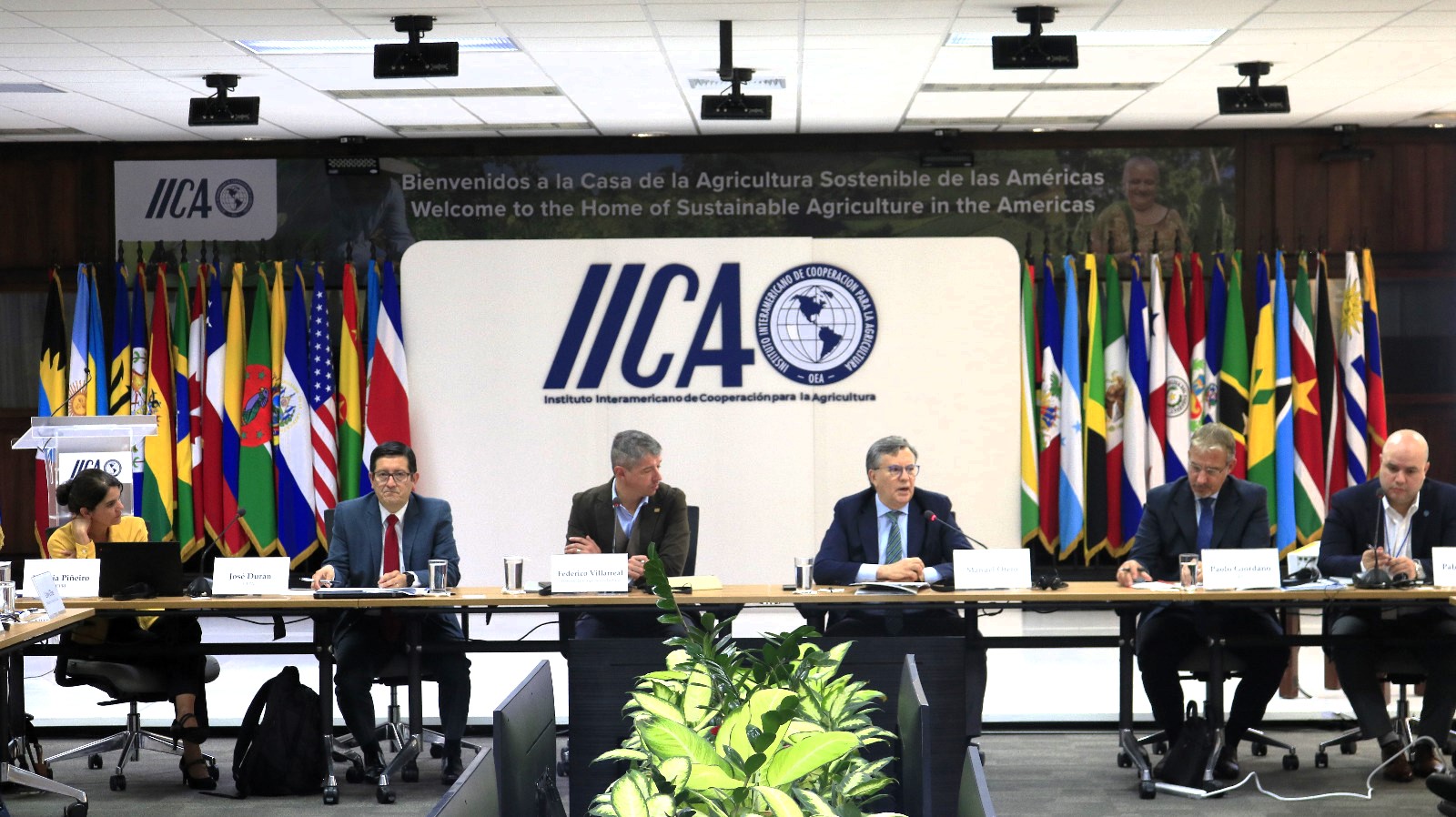At a two-day event organized by the IDB, ECLAC, FAO, IFPRI, and IICA.

San José, September 4, 2023 (IICA). Starting today in Costa Rica, a group of more than 30 people, including senior officials from the region and international experts, will discuss the role of agrifood trade in Latin America and the Caribbean (LAC) with a view to strengthening its contribution to sustainable development and global food security.
They will do so at a high-level, two-day workshop being held at the Headquarters of the Inter-American Institute for Cooperation on Agriculture (IICA) in San José.
In a context of increasing changes in economic and trade relations, the objective of the meeting is to position strategic issues on the regional agenda with a view to boosting the role that agrifood trade plays in achieving sustainability, and given its importance for food availability and access for the entire population.
The organizers of the regional workshop on the strengthening of agrifood trade in the region to boost the sector’s contribution to sustainable development and food security are the Inter-American Development Bank (IDB), the Economic Commission for Latin America and the Caribbean (ECLAC), the United Nations’ Food and Agriculture Organization (FAO), the International Food Policy Research Institute (IFPRI), and IICA.
Taking part are representatives of the region’s integration mechanisms, leading experts, and officials responsible for trade issues from various ministries and secretariats of agriculture in the Americas, as well as specialists from the organizing institutions.
The Director of the Agrarian Affairs Committee of the Argentine Council for International Relations (CARI) and Director General Emeritus of IICA, Martín Piñeiro, and the former Minister of Agriculture and Livestock of Costa Rica and former chair of the agricultural negotiations of the World Trade Organization (WTO), Gloria Abraham, will speak on the importance of, and opportunities for, trade cooperation for the countries of the region in the new international context.
Other related topics of discussion will be the geopolitical changes and their potential impact on international trade; the reconfiguration of the multilateral system within the framework of the WTO; the role of agrifood trade in the Americas, its challenges and opportunities; and possible collective actions that the region could implement to make headway on the issues raised.
The Director of the WTO’s Agriculture Division, Edwini Kessie, will also present details of his organization’s agricultural negotiations ahead of the 13th WTO Ministerial Conference (MC13).
Following the presentations, the officials and specialists taking part will exchange opinions and experiences with regard to the strengthening of the multilateral trading system; ways to avoid the emergence of rules and regulations that may affect agrifood trade; the use of current trade agreements and the signing of new agreements; and the consolidation of, and increase in, intraregional trade.
The IDB, ECLAC, FAO, IFPRI, and IICA hope these actions will allow Latin America and the Caribbean to consolidate itself as a stable supplier of agrifood products for the region and the world. Consolidating the region’s position and strengthening regional agrifood trade calls for the commitment of the countries and the support of international organizations, cooperating together to boost agrifood trade’s contribution to sustainable development and food security.
More information:
Daniel Rodríguez, manager of IICA’s International Trade and Regional Integration Program.
daniel.rodriguez@iica.int











